In my talk to the Whangarei Breast Cancer Support Trust on Saturday 27th June I mentioned making up the diet of S.O.U.L foods.
This translates to Seasonal, Organically grown /raised, Unprocessed, unrefined and Locally grown or sourced. In this article I elaborate on this further and discuss cancer fighting foods.
[print_link]
Seasonal organically grown veg and fruit
- Green leafy veg
- Crunchy – especially cruciferous veg
- Starchy – especially kumara and pumpkin
- Seasonal, organic, fresh, low fructose, low glycemic index fruit in order to keep blood sugar even. Avoid insulin spikes which cause the body to lay down fat, which you want to avoid in order to reduce cancer risk
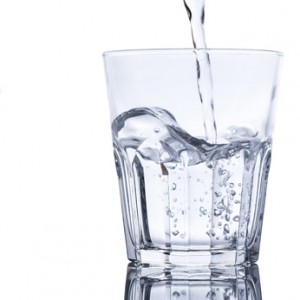 Hydration
Hydration
- Purified water (a reverse osmosis filter is good for this)
- Green and dark red freshly prepared juices
- Herb teas
- Mineral Broth
The simple way to tell if you are drinking enough water is to check the colour of your urine. It should be almost colorless – a very pale yellow. If you are taking B vitamins, or a multivitamin containing B vitamins, or turmeric/curcumin supplements it will be a little darker.
Botanicals
- Medicinal herbs and spices, appropriate supplements ( see below)
Protein
Protein is key for recovery from cancer, because your body is in a highly catabolic state breaking down due to the cancer. To recover you need the right building blocks for healthy tissue repair. Protein is necessary for this. Protein is also extremely important for stage II liver detoxification which is necessary for recovery
- Vegetable sources
- Nuts
- Seeds
- Legumes
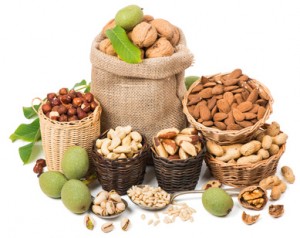 Animal Sources
Animal Sources
- Fish – especially Omega 3 rich cold water fish (the smaller the better)
- Free Range/ Organic Eggs
- Free Range/ Organic Poultry
- Organically raised meat
- Organic dairy
- Healthy Fats:
- Nuts, especially
- Walnuts –Omega 3 rich
- Brazils- selenium rich
- Almonds- alkaline, magnesium rich
- Macadamia
- Coconut
- Mono-unsaturated oils like olive oil, extra virgin and cold pressed
- EPA / DHA rich foods and supplements form oily cold water fish
- Seeds, especially
- Flax seed – phytoestrogen and lignin rich
- Chia – omega 3 rich
- Hemp seeds – omega 3 rich
- Pumpkin- omega 3 rich
- Sesame – calcium rich
- Sunflower seeds – Omega 6 rich
- Avocado
- Organic Butter in moderation
- Nuts, especially
Booster Foods
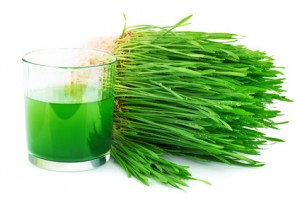 Algae – protein rich
Algae – protein rich
- Spirulina
- Sea weeds- iodine rich especially protective for breast tissue
- Medicinal Mushrooms – like shitake
- Probiotics foods – immune boosting, gut protective
- Cultured vegetables ( kimchi, sauerkraut)
- Kefir and unsweetened organic yogurt – provided you have a culture or starter these can be made from organic dairy, or preferably coconut, nut, seed, or gluten free grain milks
- Sprouts
- Broccoli
- Nuts and seeds
- Wheat and barley grass
- Micro greens
Aim for between 1800- 2400 calories / day for a 70 kg woman. Caloric intake is important because cancer is a hyper metabolic condition especially with treatment.
Is this your current diet?
If your current diet looks something like this:
Breakfast 2 cups coffee with dairy creamer and Splenda, 2 slices vogels with 2 Tablespoons Peanut Butter
Afternoon tea Muesli bar and diet coke
Lunch Chicken white filled roll, Packet of crisps
Afternoon tea Strawberry yogurt and diet coke
Dinner Spaghetti and meat balls, Boiled veg side salad, Glasses of wine
Supper- Bowl of ice cream and 3 ginger snaps
Beverages – glasses water, 2 cups coffee, 2 glasses wine
You Need Help Moving to a Health Promoting Diet
You need to realize this is not a health promoting diet! To take you from this way of eating to a diet that is truly health promoting I would help you to gradually modify your eating habits offering education on what foods promote health and how and what foods do not.
How quickly we would move on this journey together would depend on your motivation to recover and what you are willing to do to change entrenched habits, once you know why it important to do so. I will teach you how to:
- read labels when you shop
- store and prepare food
- plan menus
More Top Cancer Fighting Foods
We talked about most of these. Below are a few things I didn’t mention.
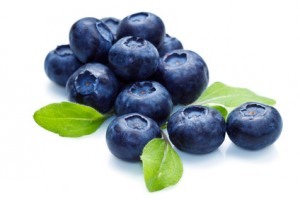 Food other than grapes that are high in Resveratrol are pistachios, blueberries,cranberries (make sure these are unsweetened, conventionally dried ones have sugar added) and even cocoa and dark chocolate – as mentioned organic is best.
Food other than grapes that are high in Resveratrol are pistachios, blueberries,cranberries (make sure these are unsweetened, conventionally dried ones have sugar added) and even cocoa and dark chocolate – as mentioned organic is best.- Ginger is highly anti-inflammatory. Many researchers are agreed that all chronic degenerative diseases including cancer are by nature inflammatory conditions
- The lycopene in tomatoes is protective against angiogenesis (the spider like web of blood vessels that feed cancer cells)
- Ginseng supports mitochondrial function (energy production in body), which takes a hit when experiencing cancer and undergoing treatment
- Chili peppers are mentioned in the chart mainly because of their high vitamin C content, but I recommend other sources of vitamin C such as sweet peppers (capsicum) limes, lemons and grapefruit as chilli peppers can be hard on already irritated gut linings.
- Green juices are a particularly concentrated source of nutrients at any time, but particularly when appetite and energy are low. Delegate the task of cleaning the juicer to family and friends who want to know how they can help! Drink fresh or juice at night, refrigerate in a lidded glass jug ( to preserve nutrients) and take to work with you in a thermos next morning.
Rosemary –Recent research has shown that two key ingredients in Rosemary- caffeic acid and rosemarinic acid- are potent antioxidant and anti- inflammatory agents, which help protect the body’s cells from damage by free radicals. Rich in carnosol, Rosemary has been found to detoxify substances that can initiate breast cancer. It’s also a rich source of vitamin E, another powerful antioxidant. Researchers believe that rosemary stimulates liver enzymes, which inactivate estrogen hormones. A word of caution- because it affects the menstrual cycle, women who are pregnant are advised against using rosemary. And since its oil is extremely potent, it should never be ingested directly.
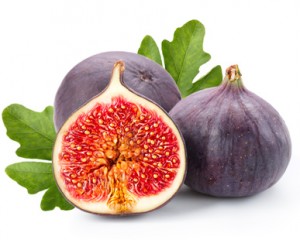 Figs – figs are high in fiber, which helps keep your system regulated and has a positive effect on weight management. According to one study the women who consumed the most fiber from vegetables and fruit had a 34% reduction in breast cancer compared to the women who consumed the least.
Figs – figs are high in fiber, which helps keep your system regulated and has a positive effect on weight management. According to one study the women who consumed the most fiber from vegetables and fruit had a 34% reduction in breast cancer compared to the women who consumed the least.
Figs are a good source of several essential minerals, including magnesium, manganese, calcium (which promotes bone density), copper, and potassium (which helps lower blood pressure), as well as vitamins, principally K and B6.
Besides keeping much longer, the nutritional value of figs increase when they’re dried. A half-cup of fresh figs, for instance, provides as much calcium as one-half cup of milk, but a single dried fig contains almost as much calcium as an egg. Whether fresh or dried, figs contain powerful antioxidants that neutralize free radicals in your body.
Traditional medicine around the world has made use of figs as poultices on tumors, warts, and wounds. The fruit and leaves have been pulverized and gargled to relieve sore throats. Fig extracts and dried figs have been found to contain ingredients that protect the heart, regulate kidney and liver functions, lower blood pressure, lower incidences of macular degeneration, and inhibit some cancers, specifically post-menopausal breast cancer.
However, consume figs in moderation because they contain fructose, which may be harmful to your health in excessive amounts.
Nutritional Supplements
Getting enough of some of these key cancer suppressing botanicals such as Turmeric, Green tea, Resveratrol and medicinal mushrooms can be tricky with diet alone.
In my practice I recommend high quality, well researched, practitioner range only nutritional supplements that contain all these as well cofactors such as coenzyme Q10, and B- Complex vitamins in therapeutic doses that effectively support conventional treatment, help prevent harmful side effects and aid recovery.
To find out more please phone me on 0273518433 or email me.
[print_link]
